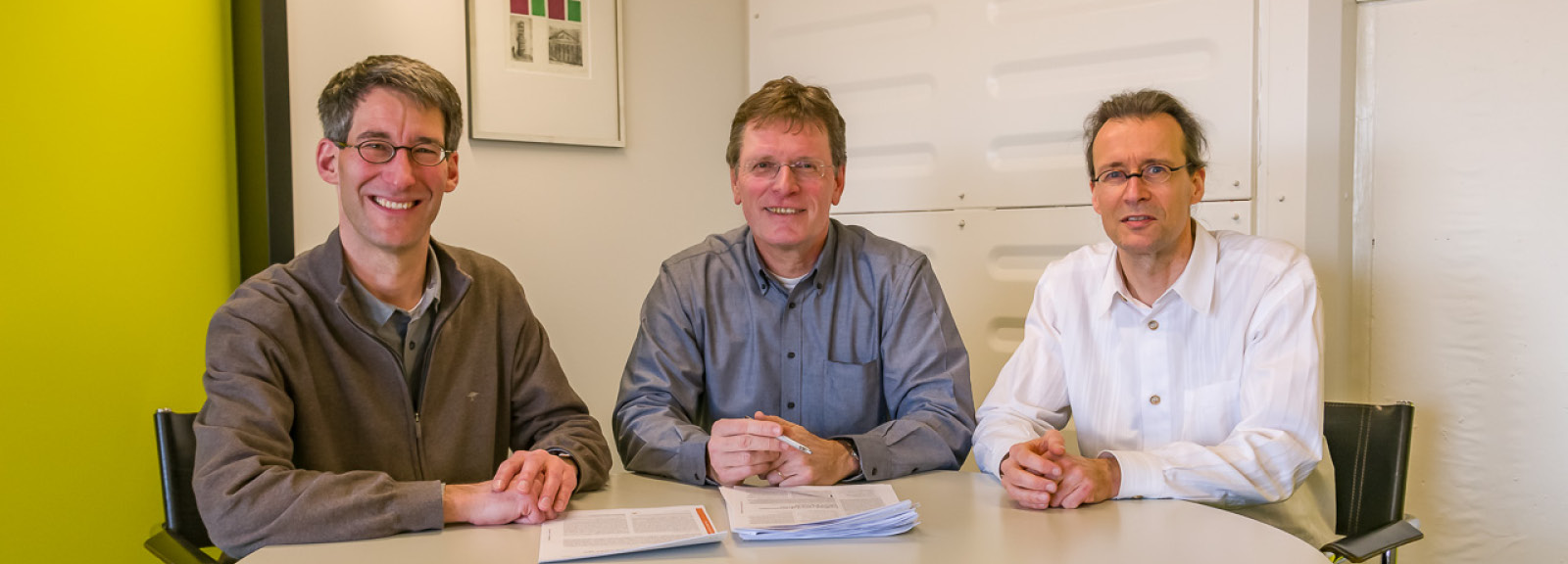Dear visitors,
at the Biochemical Institutes, we study biochemical and cellular processes ranging from the molecular level and cellular systems to animal models. We are interested in the basic biochemical mechanisms but also how these processes are altered in inflammatory or malignant pathologies and how malfunctions contribute to disease development.
Research at the Institute of Biochemistry and Molecular Biology (Director: Prof. Dr. Bernhard Lüscher) aims at understanding how signaling processes control the flow of information from the plasma membrane to the nucleus of a cell. A particular interest lies on how such signals affect gene transcription and control processes such as cell proliferation and differentiation, more specifically cell cycle progression, autophagy, apoptosis and protein biosynthesis. These are studied in the context of tumor biology, neurodegeneration and virus defense. Our focus lies in understanding the molecular mechanisms that control these processes. We study this by analyzing structures of the proteins of interest, by developing inhibitors, and by proteomics approaches to define interactomes and post-translational modifications. The deduced molecular principles are studies in biochemical and cell biological systems and with the help of model organisms.
Research at the Institute of Biochemistry and Molecular Cell Biology (Institute head: Prof. Dr. Wolfram Antonin) focuses on the biology of the cell nucleus and the cell cycle. We aim understanding how the nucleus reforms at the end of cell division in order to fulfil its manifold functions including DNA replication and transcription. This includes the questions of how compartmentalization between the nucleus and the remaining cell is established by the nuclear envelope, how at the same time the highly efficient and well controlled transport across the nuclear envelope is enabled by nuclear pore complexes and how the highly compacted mitotic chromatin is decondensed.
At the Institute of Biochemistry and Molecular Immunology (Institute head: Prof. Dr. Michael Huber), we are interested in the biology of mast cells with a focus on intra- and intercellular communication processes. We aim to understand how mast cells recognize allergens or bacterial constituents by means of receptor proteins in the plasma membrane. Moreover, we study the activation of respective intracellular signaling processes and look into the mechanisms, which determine the quality and quantity of produced and secreted pro-inflammatory mediators. This includes investigations into the role of the endoplasmic reticulum, which is able, via its communication with the cell nucleus, to regulate the amount of cytokines produced in response to cellular stimulation. By doing so, the endoplasmic reticulum governs survival or cell death of the mast cell.


